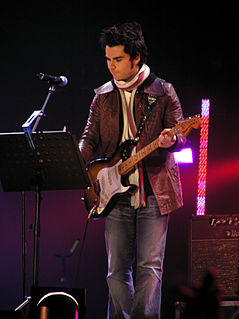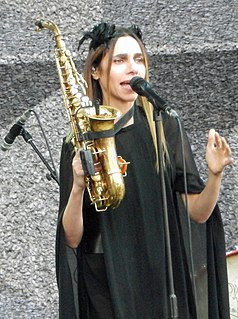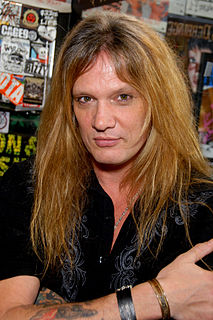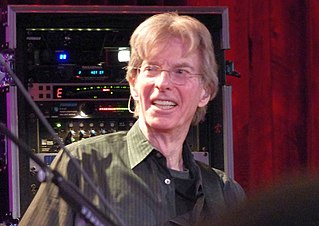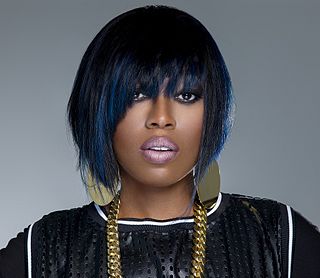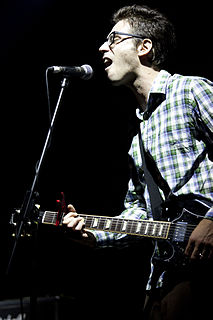A Quote by Kelly Jones
If you repeat what you did in the last tour, the likelihood is it's not gonna be successful twice. People are nostalgic about a particular record, because it's about the time when they were listening to that record. But if you do it again, they're like, I'm not that guy anymore.
Related Quotes
I call it "being interrupted by success." We had done The Soft Bulletin, which came out in 1999, and we knew we that were gonna make another record before too long. But in between this, we were still in this mode of kind of just - not re-creating what we could be, but kind of doing different things. For the longest time in the Flaming Lips we were like, "Make a record, go on tour. Come back, make another record," and you know, I think, frankly, we were kind of like, "There's more to life than just recording records and going on tour."
I don't think that much anymore in terms of 'write a record, record a record, tour a record,' because in my own mind, things have changed, in that I'm just an ongoing artist. I'm not quite sure what the next project needs to be until it presents himself, and then I know. I just follow dutifully while I'm being led.
I didn't worry about my career ending, but there were days where I felt pretty beat up by it all and just pretty tired, because they didn't make it easy for me. And coming right off the last lawsuit, it was the last thing I wanted to get involved in. When it was over, we didn't really celebrate, we were just exhausted. I lost all interest in the record business and never wanted to do anything except hand in a record again.
The decision to change the name meant we were getting serious, because we couldn't make a record if some other band had the same name as us.
I told the boys I was in a record store, thumbing though 45s, and I'd seen a record with the name the Warlocks on it. I've often wondered whether I hallucinated it, because I never saw the record again and I never heard a word about any band called the Warlocks.
I didn't really feel any pressure when I've made records, I haven't as yet anyway. I feel when I'm making a record that I'm so excited about making new songs that when I'm doing demos of new songs, as soon as I make one that's really different I get really excited about the record, I don't care about the last record anymore.
A lot of people ask me, 'How did you have the courage to walk up to record labels when you were 12 or 13 and jump right into the music industry?' It's because I knew I could never feel the kind of rejection that I felt in middle school. Because in the music industry, if they're gonna say no to you, at least they're gonna be polite about it.
The live thing is separate from the record for me. I have to figure out a way to make the songs work live. It's always going to be different than it is on a record, because every record I've made, there are people playing parts on there that are not going to be coming on tour with me. As much as still feeling connected to it, it's more like rediscovering.
